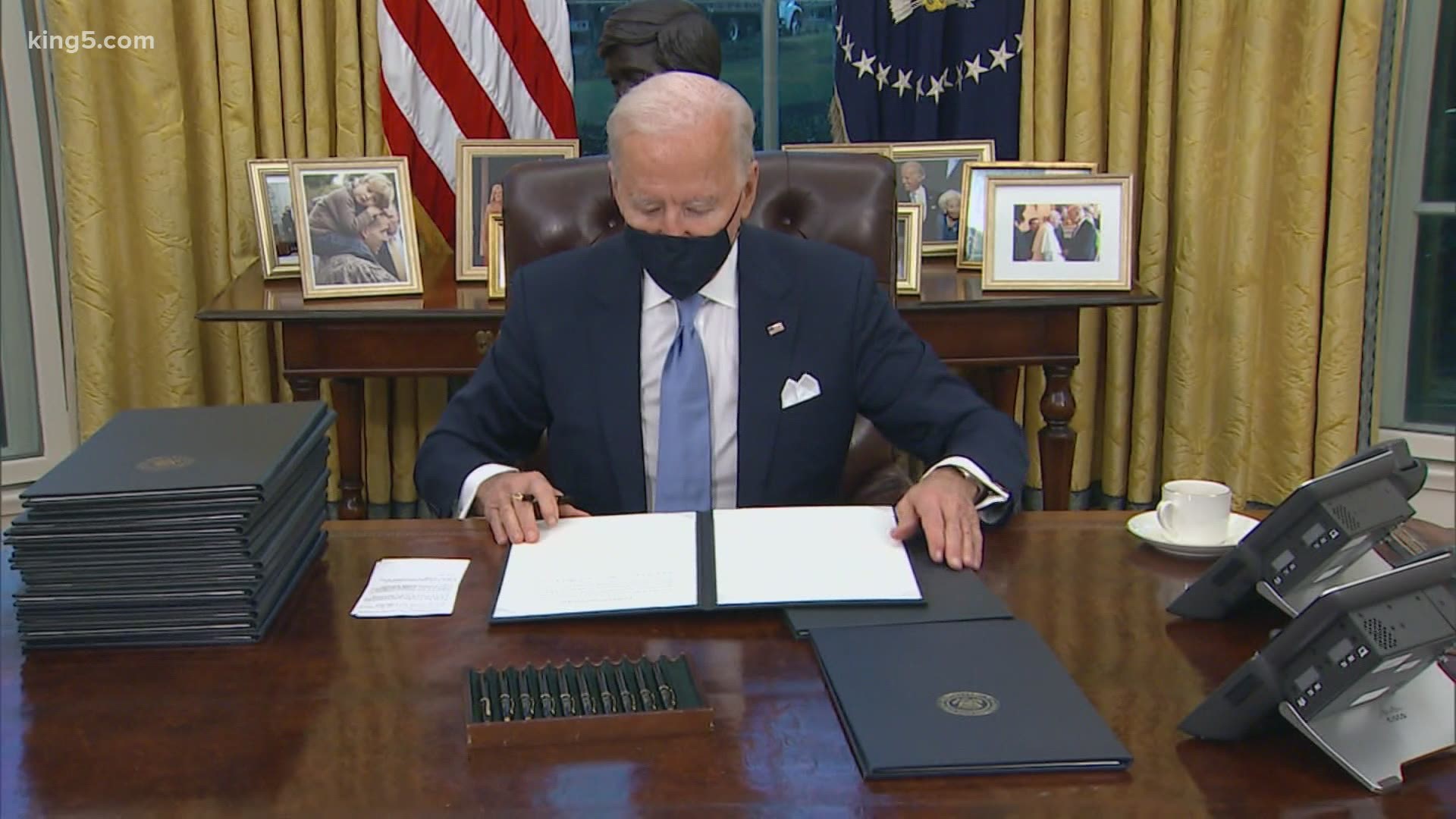SEATTLE — Just hours after taking office, President Joe Biden acted to address climate change, signing an executive order to rejoin the Paris Agreement, an international effort to limit greenhouse gasses.
It’s one of many promised steps to address environmental issues and our warming planet, and he spoke to the urgency in his inaugural address.
“The cry for survival comes from the planet itself,” Biden said. “A cry that can’t be any more desperate or any more clear.”
Climate change was a key issue of the 2020 presidential campaign, and polls have shown voters care.
Meade Krosby, a senior scientist at the University of Washington Climate Impacts Group and University Deputy Director of the NW Climate Adaptation Science Center, said there is a lot of work to do after Trump spent years rolling back or limiting dozens of environmental regulations.
“It is very clear that we finally have a president who understands the urgency and the gravity of the climate crisis, and has the will to tackle it, and has a plan that matches the scale of the challenge,” Krosby said.
Washington state is uniquely exposed to many of the impacts of climate change – from shrinking snowpack in the mountains, to ocean acidification threatening marine wildlife and industries, to semi-annual smoke clouds that crater air quality and record wildfires.
Krosby also ties some of the recent political momentum on the issue to Gov. Jay Inslee’s campaign for president, which was based on addressing climate change, and helped get the issue on the stage during Democratic primary debates.
Beyond the Paris Agreement, Biden moved to revoke the permit for the Keystone XL pipeline, which would carry oil through the U.S. from Canada, and halt oil and natural gas leases in the Arctic National Wildlife Refuge (ANWR) in Alaska.
He also paused and ordered a review of pending regulations from the Trump administration, and instructed government agencies to "capture the full costs of greenhouse gas emissions as accurately a possible," including global effects.
Beyond the immediate issues, Krosby hopes in four years, we’re well on the way to a fully renewable-powered energy grid, and reducing incentives and investments in fossil fuels.
On Wednesday, she found herself feeling hopeful.
“As a scientist, as an American, and as a mother, I feel more hopeful today than I have in years about our country’s ability to tackle the climate crisis, and in a way that doesn’t leave anybody behind,” she said. “And I know I’m not the only scientist that feels this way. This is a big day.”

